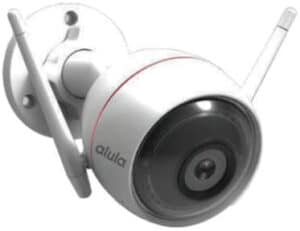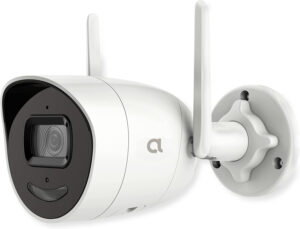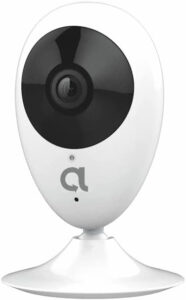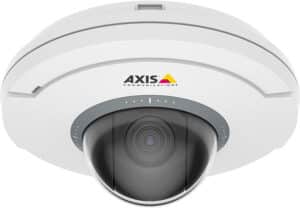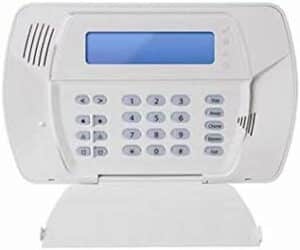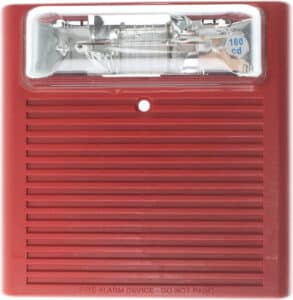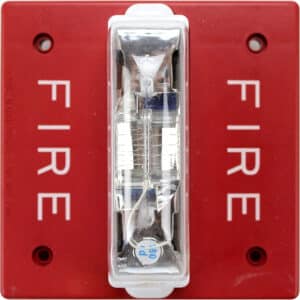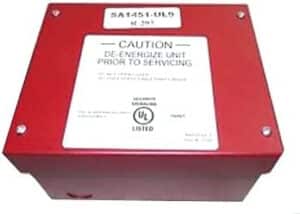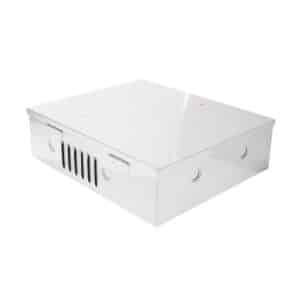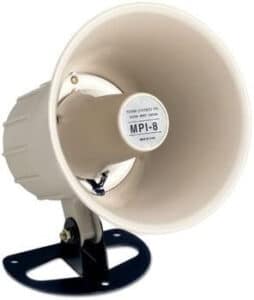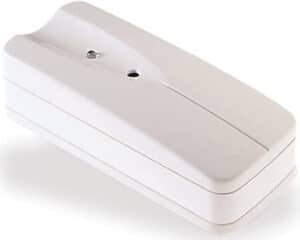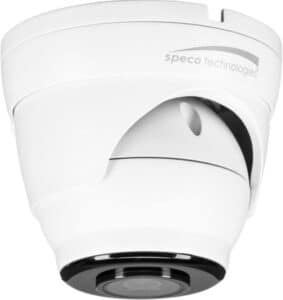Why You Should Consider Building Your Own Security System
In today’s ever-changing world, securing your home is a top priority. While traditional security systems can provide protection, they can also come with hefty monthly fees and limitations. That’s why many homeowners are turning to DIY home security systems for a customizable and cost-effective solution. Building your own security system may sound daunting, but with the right tools and knowledge, it’s easier than you might think.
In this article, we’ll explore the benefits of DIY home security systems, the components you’ll need, and tips for setting up your own system. Whether you’re a tech-savvy homeowner or a novice, building your own security system can be a game-changer in keeping your home safe and secure.
Table of Contents
10 Reasons Why Building Your Home Security Systems Are More Effective than Professionally Installed System
When it comes to home security, many homeowners assume that a professionally installed security system is the best option. However, building your own security system can be just as effective, if not more so. In fact, here are ten reasons why building your own home security system is more effective than relying on a professionally installed one:
-
Customization: One of the biggest advantages of building your own security system is that it can be customized to fit your unique needs and preferences. You have the freedom to choose the sensors, cameras, and other devices that best suit your home and lifestyle.
-
Cost savings: DIY security systems tend to be more affordable in the long run because you can purchase each component separately and spread out the cost over time. Plus, you won’t have to pay extra fees for installation or professional monitoring.
-
Flexibility: With a DIY security system, you have complete control over the system and can make changes as needed. You can easily add or remove devices, as well as adjust settings and preferences to fit your changing needs.
-
Upgradeability: As new technology emerges, you can easily upgrade your DIY system with the latest devices and features. This means your system will always stay up-to-date and provide optimum protection for your home.
-
Ease of use: Many DIY security systems are designed to be user-friendly and easy to install. You don’t have to be a tech expert to set up and use these systems.
-
No contracts: With a DIY security system, you won’t be locked into a long-term contract with a monitoring service. You have the option to choose professional monitoring on a month-to-month basis or not at all.
-
Local video storage: When you build your own security system, you can choose to store your video locally instead of relying on cloud storage. This can provide added security and privacy.
-
Better control: You have complete control over your DIY security system, including when it’s armed and disarmed. This means you can protect your home on your own terms and feel more secure.
-
Personal satisfaction: Building your own security system can be a satisfying and rewarding experience. It can be empowering to know that you’ve taken control of your home’s security.
-
Peace of mind: Ultimately, the main reason why building your own security system can be more effective than a professionally installed one is the peace of mind it provides. You can rest assured that your system is tailored to your specific needs and preferences, and you have complete control over your home’s security.
Breaking Down Security Cameras: Choosing the Best Option for Your DIY Home Security System
If you’re thinking about installing and building your own security camera system, the options may overwhelm you at first. Luckily, we break down popular DIY camera options below to help you decide what’s right for your space.
-
Wired Cameras: Wired security cameras offer impressive security benefits, but they’re not for everyone. Wired cameras must be hardwired to an outlet, meaning you can’t move the cameras after they’re installed. Furthermore, the cables can get messy or bunch up, especially if you put them in hard-to-reach places (like corners).
-
Wireless Cameras: Wireless cameras offer more flexibility than wired ones, allowing homeowners to move their cameras from place to place without needing to run new wires. That being said, they can be less secure than a wired camera (although that’s not true for every wireless camera).
-
Solar-Powered Cameras: Solar-powered cameras are an excellent choice for those who want to save energy costs. Solar-powered cameras are powered by the sun’s energy and don’t require any wiring, making them the perfect choice for those looking to go green.
-
Outdoor Cameras: Outdoor cameras are a great choice for those who want to keep an eye on their outdoor space. These cameras are rugged and designed to withstand the elements, making them perfect for keeping your home secure.
DIY Home Security System: Why Window and Door Sensors are a Must-Have
Building a DIY security system is a great idea for anyone looking to be proactive about their home security. Window and door sensors are an essential part of any DIY security system because they are the first line of defense against intruders. Here’s why they’re a must-have:
-
They detect intruders: Window and door sensors are designed to detect any forced entry into your home. When a window or door is opened, the sensor will alert you right away so that you can take the proper steps to respond.
-
They can be connected to a home security system: Depending on the type of sensor you have, you can connect it to a home security system so that you get immediate notifications if someone attempts to break into your home.
-
They’re easy to install: Most window and door sensors are designed to be easy to install and require minimal tools. They also don’t require any wiring, making them great for DIYers who don’t want to mess with complex wiring.
-
They’re affordable: Window and door sensors are fairly affordable and can be found for as low as $10. This makes them a great option for anyone looking to build a DIY security system on a budget.
Creating Your Own Security System: Choosing the Best Motion Detection Tools
When it comes to protecting your residence, it’s crucial that you invest in the proper security tools. Motion detection tools (such as motion lights, motion sensors, and motion sensor cameras) are some of the best deterrents to would-be criminals.
Motion detection tools alert you of unexpected activity, ensuring that you’re made aware of any suspicious activity before it happens. The lighting and camera systems allow you to see what’s happening at all times, while the motion sensors turn on lights within the vicinity of the sensor, giving potential criminals enough light to see what they’re doing.
Below, we’re going to dive into some of the necessary motion detection tools that you’ll need to create proper security for your home.
Motion Lights
Motion lights are one of the best ways to deter criminals from entering your home. They’re incredibly bright and will turn on when movement is detected within their range. These lights allow you to see exactly what’s happening outside of your house, and they can be programmed to turn on at certain times of the day or whenever motion is detected.
Motion lights also offer the benefit of energy efficiency, since they only turn on when needed.
Motion Sensors
Motion sensors are another great tool that can be used to secure your home. These sensors are small devices that detect motion and sound an alarm when it is detected. They can be set to detect movement at specific times of the day or within a specific area. These sensors can be used to create a perimeter around your home, which can help to keep intruders out.
Motion sensors can also be used to trigger other security systems, such as cameras or alarms. This can be a great way to monitor your home, even when you’re not around.
Don’t Underestimate Entry Sensors: How They Can Improve Your DIY Home Security System
Entry sensors, also called door sensors, alert you when someone opens your door. These sensors are typically wired into the doorjamb of an entry. There’s a magnet that senses when the sensor is covered, which could mean that the sensor is activated and the door should be locked.
Entry sensors are usually included in the cost of an alarm system, giving you all the entry protection you need. It’s also easy to connect entry points like windows and doors to your alarm system, giving you great flexibility when protecting your home. Entry sensors can also be used to turn on lights or other security measures, like cameras. This allows you to have extra protection in the event of a break-in.
Entry sensors are a great way to keep your home safe and secure. With the right system, you can get alerts when someone opens your door and take action to protect your home. With the right security measures in place, you can rest assured that your home and family are safe.
DIY Alarm Systems: Understanding the Importance of Cellular Backup
Cellular backup is incredibly important, and, in layman’s terms, it means that your alarm goes off even if the power goes out.
The battery backup is good for about 36 hours, which is enough time to call the fire department, but not long enough for the police to respond.
A security panel with no battery backups will emit a loud alarm when you’re still in the act of arming the system, which is an annoying, loud sound, but one that will eventually stop once the battery dies. Cellular backup ensures that your alarm system will be able to call the police or fire department even when there is no power. This is one of the most important features you can have in your security system.
Cellular backup also ensures that your alarm system will continue to work in the event of a power outage. Without it, your system won’t be able to alert the authorities, so you should always make sure to have a cellular backup on your system.
Lastly, cellular backup can also provide an additional layer of security for your alarm system. The cellular connection will ensure that your system remains connected to a monitoring center even when the power is out so that your alarm system can still function properly.
The Future of Security: Integrating Smart Locks into Your DIY System
The future of security is here and it involves integrating smart locks into your DIY security system. Smart locks provide more convenience and peace of mind by allowing you to control access to your home remotely with your smartphone. You can even set up automated schedules to ensure your home is always secure.
Smart locks also offer added features such as auto-lock and unlock, doorbells with video cameras, and even voice control. With the ever-evolving technology available today, it’s no surprise that smart locks are becoming the go-to choice for home security.
Smart locks are an essential part of any DIY security system, so if you’re looking to upgrade your home’s security, you should consider integrating smart locks into your system.
Not only are they convenient, but they also provide an extra layer of security to protect your home and family.
DIY Home Security Systems: Starting with the Best Control Panel Options
DIY home security systems are a great way to protect your home and family. The first step to building a system is selecting the right control panel. There are many options available, but some of the best include wireless control panels, keyless entry systems, and motion detectors.
Wireless control panels are easily installed and provide remote access to your security system from anywhere. Keyless entry systems provide access to your home without having to use a key, and motion detectors can detect movement and alert you if someone is on your property. With the right control panel, you can customize your security system to fit your individual needs.
No matter which control panel you choose, make sure it is easy to use and has a reliable connection. You should also make sure the control panel is compatible with your other security components, such as cameras, sensors, and alarms.
The Benefits of Cloud Storage for Your DIY Security System’s Video Footage
Did you know that you can store your codependent video surveillance footage in the cloud rather than recording it to the hard drive of your camera? There are some definite advantages to configuring your camera this way, so let’s take a look.
-
The cloud makes your data more protected: Since your data is securely stored in the cloud, there’s less chance of your footage being stolen or corrupted, even if your camera fails.
-
The cloud allows you to access your footage from anywhere: Unlike locally-stored footage, cloud footage can be accessed online from anywhere in the world. If you’re on vacation and want to check in on your home, you can do so by logging into your account.
-
The cloud gives you storage space as you need it: Rather than having to purchase a large hard drive ahead of time, you can choose to add cloud storage as you need it. For example, if you don’t need access to a month’s worth of footage and just want to save a week’s worth, you can simply delete that footage from the cloud.
DIY Security Systems: The Power of Local Video Storage
Are you considering building your own security system? There are plenty of reasons why DIY security systems are becoming more popular among homeowners. For one, they can save you a lot of money, and you can tailor your system to meet your specific needs. And while cloud storage has become more prevalent, there’s another option that many DIY enthusiasts are tapping into local video storage. Here’s why:
-
With local video storage, your surveillance footage is stored within your own network, meaning you don’t have to worry about monthly fees from a cloud storage provider.
-
You have full control over your footage, and you don’t have to worry about someone else accessing it or hacking into your system.
-
Local video storage allows for quick video playback and more efficient storage management since recordings are stored directly on your hard drive or network-connected device.
-
In the event of an emergency or break-in, local video storage can provide you with real-time access to footage, without relying on an internet connection or having to download footage from the cloud.
-
If you ever want to upgrade your system, local video storage can be easily integrated into a more advanced system, providing you with even more robust security capabilities.
Overall, local video storage is a powerful option for anyone considering building their own security system. It offers greater control, more efficient management, and the peace of mind that comes with knowing your surveillance footage is safe and secure.
Conclusion
Building your own security system can provide numerous benefits, including customization, cost savings, flexibility, and ease of use. It can also provide peace of mind knowing that you have control over your own security. From window and door sensors to motion detection tools and entry sensors, there are many options available to create a comprehensive security system for your home.
If you’re ready to start building your own security system, Xcessory Zone offers a wide range of affordable and easy-to-use DIY home security products. From cameras and sensors to alarms and remote monitoring, Xcessory Zone has everything you need to create a customized security system that works for you. Don’t wait until it’s too late – protect your home and family today with Xcessory Zone’s DIY home security products.
Remember, safety is a top priority, and taking proactive measures to secure your home is essential. So, take action now and start building your own security system with Xcessory Zone.
FAQs
Is it easy to install a home security system?
Installing a home security system is not always easy, but it can be done. DIY systems, smart home devices, and professional installations all offer different levels of protection, so it depends on the complexity of the system you’re looking for. If you’re looking to save money, DIY systems are a great option, as they allow you to customize your security system to your needs and budget.
Smart home devices also offer an easy way to protect your home, as they can be controlled with a mobile app. Professional security companies can also install systems, but this will cost more. Ultimately, the decision is yours, but no matter what you choose, a home security system is an important investment for protecting your home and family.
Do home security systems need to be wired?
Yes, home security systems need to be wired. Smart locks, other smart home devices, and video doorbells are all part of a wired home security system. Wired systems are more reliable and secure than wireless systems, especially when it comes to home security. With a wired system, you have more control over the security of your home.
Wiring your home security system ensures that your smart locks, other smart home devices, and video doorbells all stay connected and secure. Wired security systems also tend to be more reliable than wireless systems, making them the preferred choice for home security. Wired systems also provide better video quality, making it easier to identify potential intruders. With a wired system, you can rest assured that your home is secure from intruders.
Can I build my own security system?
Yes, you can build your own security system. However, it is important to note that proper installation is key to ensuring a reliable security system. Additionally, you may want to consider optional professional monitoring and smoke detectors for optimal safety. With proper installation and optional professional monitoring, you can build a security system that will help protect your home.
Meet Our Partners!




